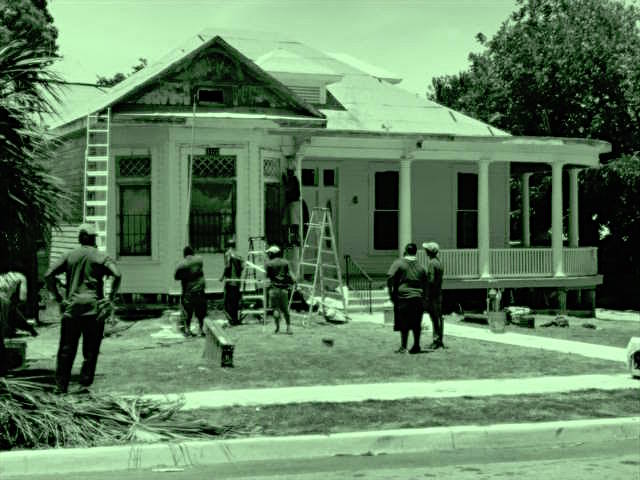These remarks were presented before the Removing Barriers to Affordable Housing (RBAH) Committee meeting on June 21, 2019.
By Rich Acosta
As a non-profit trying to fill in a void, I was hopeful when the San Antonio Fee Wavier Program was passed, but only recently found out that it was used up almost immediately after it was released. So, we will not be able to get any support from the city. Later this year, we will be building single family homes for $100,000 or less for 60% AMI displaced homeowners (homeowners that can’t afford their homes because of property taxes and needed repairs). Without any support from the city, before we break ground, it will cost us roughly $11k – $21k in permits and fees.
~ $7k SAWS fees ~ $2.5 Zoning fees ~ $1k Permits fees ~ $10k if we need to replot
According to SanAntonio.gov, CCHIP and Fee waivers that were paid out, created 6,819 units.
71% went to producing market rate units – $18.8M in fee waived and $4.2M in loans
5% went to units at 80% AMI – $10M in fees waived and $1.5M in loans
13% went to units at 60% AMI – $6M in fees waived and $726K in loans
2% went to units at 30% AMI – $2M in fees waived and no loans
7% went to units at student units – $1.6M in fees waived and $1.1M in loans
It is unfortunate that most of the fee waiver program, that was thought to be used to increase units produced for low income residents, instead went to market rate housing.
What I am suggesting to this UDC committee is language that differs from non-profit development and for-profit development. When looking at covenants, adjustments, less restraints and more restraints, remember that not all development is for profit, but truly is for the benefit of the community.
As for covenants, consider homeownership vs rentals. When putting these covenants on development for homeownership, though the point may be to allow more low-income residents to become homeowners, know that it is through the sale of a home that can increase the wealth of a low-income person and bring them out of poverty. Restricting what someone can make in a sale of a home, could be making them a glorified renter and still not allow them to move up from the home that they needed the support to obtain to begin with. Perhaps ensuring the city funds that were used are paid back upon sale and have a regressive lien that is incrementally forgiven every few years until completely forgiven. If no other tool other than covenants can be used, know that the average time a homeowner lives in a home is 8-10 years.
My City Is My Home aims to educate and support homeowners and renters to increase their housing choices, please in your work, don’t increase their choices only to later restrict them from obtaining higher opportunities.
Rich Acosta is the President of My City is My Home


I’d like to learn about restrictions on what a person can make on the sale of a home. Thank you.
Hello,
My reference to restrictions on sale is from 30 year convenient our nonprofit was told we would have to abid by if we wanted any city land or tax incentives.
What it does is ensure the home stays affordable for the AMI that program is targeting.
So if the program you recieved funds for was to promote 60% ami and below, for the next 30 years that property must be sold at below 60% ami.
Our issue with this is that it takes away the ability for our low income clients to get out of the poverty cycle. If you are below 60% ami and then in 10 years need to move for one reason and have to resale at 60% ami how much equity are you going to have? And then be able to buy another home?
To us this is not home ownership but glorified renters and not breaking the cycle of poverty. We are fine if the city wants their investment back upon sale, but limiting the growth is not the answer in our view.
I hope this helped clarify, I can also email you an example a convenient language for your reference.
Mycityismyhome@gmail.com